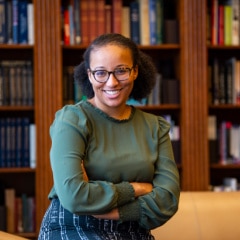2022 NAEd/SPENCER POSTDOCTORAL FELLOWS
Dominique Baker, Southern Methodist University
Dominique Baker is an Associate Professor of Education Policy (effective Sept 1, 2022) in the Annette Caldwell Simmons School of Education and Human Development and a Faculty Affiliate of the Data Science Institute at Southern Methodist University. Her research focuses on the way that education policy affects and shapes the access and success of minoritized students in higher education. She primarily investigates student financial aid, affirmative action and admissions policies, and policies that influence the ability to create an inclusive & equitable campus climate. Dr. Baker has testified before the Senate Committee on Banking, Housing, and Urban Affairs’s Subcommittee on Economic Policy on race, racism, and student loans. Her work and expertise have been highlighted by The New York Times, The Washington Post, The Wall Street Journal, and National Public Radio, among others. She is the 2021 recipient for the Association for Education Finance & Policy’s Early Career Award and the Association for the Study of Higher Education’s Excellence in Public Policy Award, in recognition of the impact and promise of her scholarly career. Dr. Baker earned her Ph.D. in Higher Education Leadership and Policy Studies (education policy) from Peabody College at Vanderbilt University. She earned her M.Ed. in Student Affairs Practice in Higher Education and B.A. in Psychology from the University of Virginia.
To Borrow a Phrase: An Investigation of the News Media’s Role in Racialized Student Loan Policy Communication
Systemic racism creates an environment in which students of color disproportionately struggle with student loans. Media coverage of student loans, including the ways in which race, racism, and student loans intersect, plays a significant role in the public’s and policy actors’ understanding of the challenges student loans cause and potential solutions. Dr. Dominique Baker will examine the racial framing of student loans using computational social science techniques applied to fifteen years’ worth of news articles. Focusing on policy communication through the media will help to ensure that the public and policy actors do not rely on decontextualized and race-neutral understandings of student loan debt.
Laura Chávez-Moreno, University of California, Los Angeles
Laura C. Chávez-Moreno is an assistant professor at UCLA’s César E. Chávez Department of Chicana/o and Central American Studies. Dr. Chávez-Moreno received a PhD in Curriculum & Instruction from the University of Wisconsin-Madison. She studies how schooling teaches about race and racism and makes ideas about Latinidad. Her research critiques systems of oppression in schooling and supports advancing education for self-determination. She is a fellow of the 2020–2022 cohort of National Council of Teachers of English Research Foundation’s Cultivating New Voices among Scholars of Color. Her work appears in Educational Researcher (2022), American Educational Research Journal (2021), Handbook of Latinos & Education (2nd ed., 2021), Journal of Teacher Education (2021), Urban Review (2021), and Research in the Teaching of English (in press). Dr. Chávez-Moreno has won several awards including the 2019 Outstanding Dissertation Awards from the American Educational Research Association (AERA) Division G Social Contexts in Education; AERA Latina/o/x Research Issues Special Interest Group (SIG); AERA Bilingual Education Research SIG (1st place); and the American Association of Hispanics in Higher Education (3rd place). Dr. Chávez-Moreno was a high school teacher in the Philadelphia Public School District, and she grew up in Douglas, Arizona and Agua Prieta, Sonora, México.
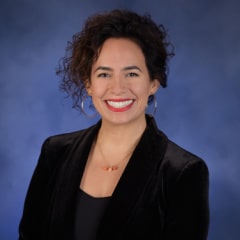
Racialization and Equity in Education
Dr. Chávez-Moreno’s forthcoming book, Racialization and Equity in Education, is under contract with Harvard Education Press Series Race & Education. The book presents how a school district’s bilingual-education program and its teachers engage in racialization (that is, demarcate racialized groups) and construct ideas about race and Latinidad. This project explores these issues because how bilingual schooling teaches about race, racism, and Latinidad affects whether it can disrupt racial hierarchies and provide students an education for self-determination. Racialization and Equity in Education broadens conceptions of education’s role in racialization and in cultivating critical-racial consciousness, and re-imagines how to make schooling equitable.
Karishma Desai, Rutgers, The State University of New Jersey

Karishma Desai is an Assistant Professor at the Graduate School of Education at Rutgers University-New Brunswick. Dr. Desai’s interdisciplinary research employs anthropological and feminist lenses in the study of childhood/youth, gender, and education. Her central concerns gravitate around the politics of knowledge, being, and aspirations/futures. Attending to global political economic structures and discourses alongside the everyday lives of young people, she studies the gendered and racialized subjectivities forwarded as desirable, with particular attention to the values, aspirations, and affective orientations made available. Dr. Desai’s research asks two key questions related to sites educating young people: What knowledges and ontologies matter in constructions of gendered and racialized childhoods and how have they come to matter? How are they disrupted? These questions lead to the study of entrenched colonial logics within educational sites, and transnational and decolonial feminist projects that unsettle liberal, anthropocentric constructions of the human. Dr. Desai’s research has been published in journals including Gender and Education, Comparative Education Review and Anthropology and Education Quarterly. She was also a 2019 Concha Delgado Gaitan Presidential Fellow awarded by the Council of Anthropology and Education. Desai received her doctorate and M.Ed from Teachers College, Columbia University and holds a B.A. in Anthropology from Washington University in St. Louis.
Shaping Youth Potential: Development, Gendered Aspirations and Contested Visions of Indigenous Futures in Western India
As ecological devastation intensifies and economic development results in extraction of natural resources, Indigenous communities around the world face severe consequences. Indigenous youth within these contexts are subject to two seemingly oppositional forces as a result. On one hand, state interventions claim to empower Indigenous youth by cultivating their human capital to ‘develop’ Indigenous regions even while the state confiscates community land. On the other hand, Indigenous social movements center youth as political actors in struggles towards sovereignty. Both draw on education as a means to shape youth potential towards distinct visions of Indigenous futures. Importantly, the gendered impacts of political economic shifts, distinct roles women play in social movements, and different kinds of skills training illustrate that gendered visions for youth and community futures. Through a multi-sited comparative ethnography in the Narmada district of Gujarat, this study will bring into relief these key positions about Indigenous youth potential, examine how educational projects produce related gendered aspirations, and show how youth interpret and make sense of their own and their communities’ futures. Examining state educational efforts in relation to that of an Indigenous social movement provides ethnographic insight into the possibilities and limits of educational sovereignty and decolonial futures in postcolonial societies.
Mark Emerick, Muhlenberg College
Mark R. Emerick is an assistant professor of education at Muhlenberg College in Allentown, Pennsylvania. A first-generation college student, he earned his B.A. in English and M.Ed. in curriculum and instruction from Kutztown University of Pennsylvania and his Ph.D. in applied linguistics from Temple University. Broadly, Dr. Emerick’s research draws on critical race theory to examine how language and identity affect equitable access to educational opportunities for emergent bilingual students in U.S. schools. In particular, he has focused on the potential of career and technical education as a pathway for emergent bilinguals to attain college and career readiness, the racialized and linguistic ideologies that influence conceptualizations of college and career readiness, and how attitudes about language influence local-level policies in career and technical education centers. His research has appeared in Anthropology and Education Quarterly and Educational Administration Quarterly. Prior to pursuing an academic career, Mark was a middle and high school ESL teacher. At Muhlenberg, he teaches courses in TESOL, social foundations of education, and sociolinguistics.
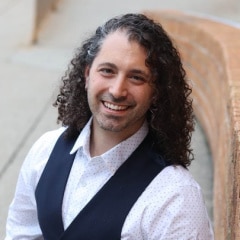
From Sending Schools to Career and Technical Centers: Race- and Language-Neutral Policies as Barriers for Emergent Bilingual Students
Despite decades of research and advocacy, emergent bilingual students (EBs) continue to experience marginalization and limited opportunity to learn in U.S. secondary schools. As a result, some researchers have considered the potential of career and technical education (CTE) as a pathway for EBs to achieve college and career readiness. While certain aspects of CTE may be promising, EBs are underrepresented in CTE programs. To gain insight into the disparity in CTE participation, this study examines how school-level policies and the practices of school leaders, counselors, and teachers along the CTE enrollment pathway may contribute to these disparities. Engaging in a 9-month multi-sited ethnographic study, I will (a) examine official and de facto school policies regarding CTE enrollment, (b) document counseling practices and how these practices affect EBs’ opportunities for college and career readiness, and (c) consider the ways in which EBs draw on social, familial, and navigational capital to negotiate these complex educational systems in pursuit of their career and life goals. The study will challenge inequitable structures and advising practices that limit EBs’ access to CTE, center the rich narratives of students who decide to pursue CTE programs during high school, and provide insights for school-level interventions and equitable career counseling practices for EB youth.
Alejandro Ganimian, New York University

Alejandro J. Ganimian is an Assistant Professor of Applied Psychology and Economics at New York University’s Steinhardt School of Culture, Education, and Human Development. His research focuses on how school systems in developing countries can ensure all children acquire basic skills by improving children’s preparation for school, supporting teachers to cater to heterogeneous student groups, and helping principals use data to inform management practices. He pursues this agenda through randomized field trials in Latin America and South Asia. He leverages his training in economics to estimate the impact of interventions and in psychometrics to develop measures of academic and social-emotional development. His research has been published in the American Economic Review, the World Bank Economic Review, the Review of Educational Research, Educational Evaluation and Policy Analysis, and the Journal for Research on Educational Effectiveness. He holds a doctorate in Quantitative Policy Analysis in Education from Harvard University, where he was a fellow in the Multidisciplinary Program in Inequality and Social Policy; a master’s in Educational Research from the University of Cambridge, where he was a Gates Scholar; and a bachelor’s in International Politics from Georgetown University. He was also a postdoctoral fellow at the Abdul Latif Jameel Poverty Action Lab (J-PAL). He is a Non-Resident Fellow at the Brookings Institution’ Center for Universal Education; an Invited Researcher of the regional offices of J-PAL for Latin America and the Caribbean and South Asia; and an Advisory Board member of the Organization of Ibero-American States for Education, Science, and Culture (OEI).
Do Teachers in Developing Countries Really “Teach to the Top”? A Classroom-Observation Protocol to Characterize Heterogeneity in Student-Teacher Interactions
Many believe that teachers in low- and middle-income countries focus too much on students at the top of the achievement distribution, consequently paying insufficient attention to students who struggle with the material, who are in greater need of support. This perception, however, has not been empirically examined, but largely inferred from contextual factors that encourage teachers to direct their effort towards students who are more likely to stay in school, and from persistently low levels of student achievement, which appear to be consistent with many students deriving very little benefit from attending school regularly. I propose to develop, pilot, and validate a classroom-observation protocol in secondary schools in Bangladesh to understand: (a) whether teachers are more likely to interact (e.g., asking/answering questions, assigning classwork, or providing support) with high-achieving students than with their low-achieving peers, or to have different types of interactions with these two groups (e.g., using harsh v. encouraging language, asking yes/no v. open-ended questions); (b) the extent to which these interactions can be measured consistently (i.e., distinguishing true differences in interactions across teachers from other factors, such as the difficulty of the aspects being observed or rater stringency); (c) whether teacher characteristics (e.g., education and experience) and student characteristics (e.g., sex and socio-economic status) can predict the nature of student-teacher interactions; and (d) whether students who interact more and/or more meaningfully with their teachers have better academic and social-emotional outcomes (e.g., self-efficacy, locus of control, growth mindset, and grit).
Emma Gargroetzi, University of Texas
Emma Gargroetzi is an Assistant Professor in the Department of Curriculum and Instruction at University of Texas at Austin (as of June, 2022). Inspired by fifteen years of working with young people in New York City, Latin America, and California’s Bay Area, Emma’s research focuses on identity, power, and educational justice in the mathematical lives of children and youth. Her ongoing work examines the use of quantitative reasoning in youth civic composing and the possibilities for educational dignity in mathematics learning environments. Emma received her PhD from Stanford University with a dual focus in race, inequality, and language in education and in mathematics education. She also holds an MA from Columbia University Teachers College in peace education, an MS from Brooklyn College in teaching students with disabilities, and a BA in political science from Vassar College.

Quantitative Civic Composing for Imagination, Action, and Freedom: A Social Design-Based Experiment in Mathematics and English Language Arts
This study brings together Humanities and STEM teachers from three schools located across diverse geopolitical contexts to explore, design, and implement learning units that combine literary and mathematical practices for the purpose of civic learning and social problem solving. Drawing on teacher inquiry and case study methodologies, the research is conceived as a social design-based experiment with the purpose of illuminating new possibilities for youth and schools in building an anti-oppressive and inclusive democracy. Bringing together theory and practice contributed through research in critical literacy, mathematics for social justice, and youth civic composing, the study takes a critical sociocultural approach to exploring youth identities and participation as civic actors in unprecedented times. The research will contribute insight into the possibilities and challenges of schools, especially language arts and math classrooms, as sites of civic imagination. The project is driven by the hypothesis that transdisciplinary collaboration between Humanities and STEM educators locally and across sites, supported through a critical teacher learning community, may open new avenues for youth identities and engagement in literacy, mathematics, and civic life.
Daphne Henry, University of Pittsburgh
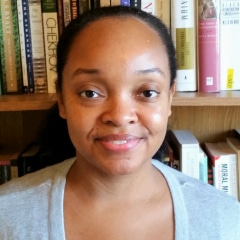
Daphne A. Henry is an Assistant Professor with a joint appointment in the Department of Psychology and Learning Research and Development Center at the University of Pittsburgh. Drawing from multidisciplinary scholarship, her research investigates how socioeconomic status and race/ethnicity intersect to shape children’s academic development and developmental contexts, including their home, school, and neighborhood environments. She employs a diverse methodological tool-kit, including large-scale longitudinal data analysis and mixed-methods approaches, to delineate the processes linking race/ethnicity and socioeconomic status to children’s academic functioning and to uncover how complex patterns of family, community, and societal inequality influence children’s early development and long-term well-being. Dr. Henry earned a Ph.D. in developmental psychology and a B.A. in history at the University of Pittsburgh. She has received research support from the National Science Foundation Graduate Research Fellowship Program, the National Academy of Education/Spencer Foundation, and the American Psychological Foundation, and her scholarship has been published in the Journal of Educational Psychology, the Journal of Clinical Child and Adolescent Psychology, and American Psychologist, among other outlets.
Intersectional Identities: Investigating how Race, Socioeconomic Status, and Gender Jointly Shape Childhood Achievement and Family Contexts
The Black-White educational opportunity gap contributes to intergenerational racial inequality in well-being. Although inequalities in family socioeconomic status (SES) help foment educational disparities, multiple studies indicate that the academic returns to SES differ for Black and White children, with Black children deriving smaller achievement gains from higher SES. Recent research also suggests that the academic returns to SES differ by gender, and growing evidence shows Black girls outpace Black boys in scholastic achievement. Yet, the reasons why the educational returns to SES differ by race are not well understood, and it remains unclear whether this pattern of diminished returns operates similarly for Black girls and boys. This project has three main goals. Using nationally-representative, longitudinal panel data, it 1) Investigates how race and multiple SES dimensions (i.e., parental education level, family income, and family wealth) intersect to shape academic development, 2) Tests whether multiple contextual pathways (e.g., parenting practices and parental psychological functioning) help explain diminished academic returns for Black children, and 3) Explores whether this pattern of differential returns and the pathways underlying it differ by gender. This work will enhance understanding of the intersectional associations between race, family SES, gender, and academic development, explore why family SES does not translate into similar achievement patterns for Black and White children, and examine how contextual sources of risk and resilience may vary among Black boys and girls.
Jennifer Higgs, University of California, Davis
Jennifer (Jenni) Higgs is an Assistant Professor of Learning and Mind Sciences and Language, Literacy, and Culture at the University of California, Davis. Drawing from sociocultural learning theories and employing methodologies such as design-based research and survey research, she investigates young people’s and teachers’ sense-making of digital tools and ecologies that invite new forms of reading, writing, and participation; support structures that can help teachers facilitate equitable uses and understandings of digital technologies; and the spread and scale of educational innovations in our advanced digital age. These interests are informed by her years as a high school English teacher in Virginia and Illinois public schools. Dr. Higgs’ research has been supported by the National Academy of Education, the Spencer Foundation (2016 Dissertation Fellow), the Berkeley Center for New Media, and the James S. McDonnell Foundation. Her work has appeared in various academic journals, including Research in the Teaching of English, Educational Researcher, Equity and Excellence in Education, and Human Development. Dr. Higgs holds a Ph.D. from the University of California, Berkeley, an M.A. and M.S. from Northwestern University, and a B.A. from Cornell University.
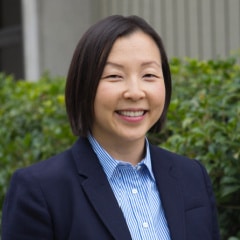
Computing Education for the People: Broadening Participation through Sociotechnical Awareness in Secondary English Language Arts and Civics Classrooms
While more researchers are calling for inclusion of sociopolitical issues in K-12 computing education, these explorations have been marked primarily for students enrolled in CS coursework. However, as multiple levels of society increasingly rely on computational technologies, the ability to critically examine their often undeclared power and confront questions they raise about equity, ethics, civic participation, and social systems should be viewed as a fundamental component of education made available to all learners, not just those on CS pathways. Accordingly, there is an urgent need to reimagine not only what computing education is, but where it can take place and who has access to it.
To make computing education truly accessible, it is necessary to decenter CS courses as the only contexts for meaningful computing education and adopt interdisciplinary approaches that provide all students with opportunities to develop sociotechnical awareness, a critical lens that interrogates intersections of computing technologies, power, ethics, and social hierarchies. Research is needed to examine what this work might look like in non-STEM K-12 core courses to which most students have access. This project addresses this empirical gap through a social design-based experiment that explores English and Civics classrooms as potential sites of computing education, focusing on the design of these environments to support sociotechnical awareness.
Adrian Huerta, University of Southern California
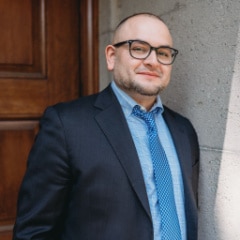
Adrian H. Huerta is an Assistant Professor of Education in the Pullias Center for Higher Education at the University of Southern California’s Rossier School of Education. He uses qualitative methods to broadly explore the sociocultural experiences of boys and men of color and gang-associated youth/young adults with a focus on college access, (in)equity, and success. His publications appear in American Behavioral Scientist, Journal of College Student Development, Journal of Diversity in Higher Education, The Urban Review, Urban Education, and others. He is co-PI on a $990,000 grant from the U.S. Department of Education to develop pathways to higher education for gang-associated youth and young adults to earn college degrees, certificates, or credentials with Long Beach City College. Dr. Huerta’s research has also been supported by the ECMC Foundation, and the Institute for Research on Poverty/JPB Foundation. He is a recipient of the American Educational Research Association’s Minority Dissertation Fellowship. He earned his Ph.D. and M.A. in Education from the University of California Los Angeles, a master’s degree from The Ohio State University’s College of Education and Human Ecology as well as a B.S. in Human Services from the University of Nevada, Las Vegas. He is a member of the inaugural cohort of Health Affairs’ Racial Equity Health Fellows, which supports translating his gang-focused research to public health policymakers.
The Educational Pathways of Former Gang Members From K-12 to College Graduates
More than 1 million youth are involved in gangs across rural, urban, and suburban communities in the U.S. While past studies on gang-associated youth have focused on violence and victimization, (mis)treatment in educational spaces, and overuse of punitive social control methods, few studies have centered on gang members’ educational aspirations and achievements. I use the Possible Selves theoretical framework to guide this qualitative study to analyze in-depth interviews, documents, and photos. The research will examine the educational pathways, barriers, and successes of former gang members who earned a college degree (e.g., Bachelor’s, Master’s, or doctorates). I draw from interviews with 50+ former gang members who were active in their gangs for a few years to more than 20 years. This study seeks to advance understanding of how, why, and when people left their gangs, the social processes to transition and excel in higher education, and the multiple motivations to ultimately earn a college degree. The findings from this study will offer a richer and deeper perspective on the social and educational experiences of gang-associated youth and adults to better support and engage this population throughout the educational pipeline to promote postsecondary education over deficit-laden perspectives and barrier creation for gang members.
Alexander Hyres, University of Utah
Alexander Hyres is an Assistant Professor in the History of US Education in the Education, Culture, and Society Department at the University of Utah. He is also a Research Affiliate of the Teachers in the Movement Oral History Project at the University of Virginia. He earned a BA in history and an MIT in secondary social studies education at the University of Washington. He taught English and social studies to middle and high school students in the San Francisco Bay Area, before earning a PhD in the Social Foundations of Education at the University of Virginia. At the University of Utah, he teaches courses on the history of education, activism and organizing, and race, space, and educational inequality. In 2022, he received the Early Career Teaching Award in the College of Education. His research focuses on the history of Black education, teacher and student activism, curriculum and pedagogy, and the American High School. His writing has appeared in Black Perspectives, The Journal of African American History, History of Education Journal, Teachers College Record, and The Washington Post. Currently, he is finishing a book, Protest and Pedagogy: Black Resistance and the American High School, 1890-1990, which examines how, and in what ways, high school teachers and students propelled and sustained the Black freedom struggle in Charlottesville, Virginia.

Educating in a Burning House: Black Teachers and the Desegregation of Schools, Colleges, and Universities in the South, 1960-2001
On the one hand, many Black teachers and administrators were fired, demoted, and displaced throughout the South in the aftermath of the Brown decisions. On the other hand, there were Black teachers who kept their jobs and desegregated K-12 public schools as teachers and predominantly white institutions as graduate students during the latter half of the twentieth century. This project draws upon more than a hundred oral history interviews from the Teachers in the Movement Oral History Project (TIM), curriculum and pedagogical materials, and archival sources, including the papers of teacher organizations, to examine the contours of Black teachers’ desegregation of schools, colleges, and universities in the upper and lower South: Virginia, North Carolina, South Carolina, and Georgia. Not only does the project focus on the first decades of school desegregation in the 1960s and 1970s, but it also highlights the change over time as school desegregation reached its apex before the resegregation of schools took hold in the 1980s, 1990s, and 2000s. This history will help illuminate how Black teachers navigated school desegregation, but also the multiple and nuanced factors, beyond Brown, leading to the disproportionate lack of Black teachers in the South now.
Rebecca Johnson, Georgetown University

Rebecca Johnson is an Assistant Professor in Georgetown’s McCourt School of Public Policy, where she teaches computational social science and is affiliated with the Massive Data Institute (MDI). Her research focuses on how K-12 school districts use a mix of data and discretion to decide which students need help most urgently, combining computational methods (field experiments; quasi-experimental designs; natural language processing) with normative analysis. Her early career work, funded by the American Bar Foundation (ABF)/JPB Foundation Access to Justice Scholars program, focused on how school districts with tight budgets struggle with two types of legal pressure: weakly-funded legislative mandates that direct them to prioritize certain groups of students and parents’ due process claims pressing for priority for their children. Pilot work for the Spencer/NAEd project, funded by the NSF TESS Program and Dartmouth’s Neukom Institution for Computational Science, investigates shifts from districts using legal categories to prioritize to districts using predictive models/algorithms. Previously, she received her BA/MA from Stanford University, her PhD in Sociology and Social Policy from Princeton University, and served as an Assistant Professor in Dartmouth College’s Program in Quantitative Social Science.
Prioritization within K-12 School Districts: Parents, Policy Categories, and Predictive Algorithms
A growing body of research investigates how algorithms impact inequality across several domains, including lending, hiring, and criminal justice. But less is known about the rise of predictive algorithms in K-12 schools; most research focuses on algorithms for surveillance, such as facial recognition software or automated exam proctoring, rather than algorithms that try to predict which students need help most urgently to target supportive resources. This project focuses on a particular K-12 resource shortage: how districts make decisions about which students to prioritize for intensive “high-dosage” tutors in the wake of the COVID-19 pandemic. The project will combine three methodologies. First is a vignette-based survey experiment fielded in fall of 2021 with a nationally-representative sample of U.S. residents and an oversample of current K-12 parents (N = 5,600 respondents; N = 2,670 parents), which finds that both parents and non-parents perceive predictive algorithms as a significantly fairer way to ascertain student need than existing prioritization methods (e.g., counselor discretion; parent requests; legal categories). The Spencer/NAEd extension delves into the parents’ qualitative responses to investigate how past racialized and gendered experiences with schools shape fairness perceptions. Second is a simulation-based study to explore which students are identified as “needing help” using algorithms versus older methods. Third are qualitative interviews with leadership in K-12 districts about how they selected a prioritization method for high-dosage tutors. The project uses a case of post COVID-19 triage to explore longstanding tensions over which stakeholders—parents; school professionals; judges—ought to influence the distribution of school resources.
Harper Keenan, University of British Columbia
Harper B. Keenan is an Assistant Professor in the Department of Curriculum and Pedagogy at the University of British Columbia. He currently serves as the inaugural Robert Quartermain Professor of Gender and Sexuality in Education. Dr. Keenan’s scholarship examines how adults and children relate to each other within the structures of schooling and other educational contexts. He is particularly interested in what the treatment of social and historical topics as complex and/or difficult in the education of young children might reveal about society more broadly. Dr. Keenan received a Ph.D. from the Stanford Graduate School of Education, a dual M.S.Ed. in Childhood Special and General Education from Bank Street College, and a B.A. from Eugene Lang College at The New School. His scholarship has been published in a variety of academic journals, including the Harvard Educational Review, Educational Researcher, Teachers College Record, Curriculum Inquiry, and Gender and Education. He has also written op-eds or been interviewed by popular press outlets like Teen Vogue, NPR, Reuters, NBC National News, EdWeek, and Slate. Dr. Keenan is a proud former New York City elementary school teacher.

Unmanageable Subjects: Trans Childhoods and the Challenge of Self-Determination at School
Gender self-determination has been the unifying demand of transgender social movements in the United States since they began to coalesce more than 50 years ago. The challenges still facing trans youth expose the persistent role of schooling in regulating gender, and in managing childhood more broadly. I argue that trans people are positioned as unmanageable subjects within the context of K-12 schools. This phrase has an intentional double meaning, referencing 1) the treatment of transgender existence as a taboo topic, and 2) the challenges trans children pose to the administrative and social regulation of gender. How might educators embrace unmanageability? What might it look like to practice education that resists rigidly scripting the world, including who children can be and become within it? Drawing on two years of multi-site qualitative data drawn from five elementary school classrooms and one after school program in a large urban school district in Northern California, this study examines the struggle for gender self-determination in primary education through more than 50 interviews and 5 focus groups with teachers, 20 play-based focus groups with children, and over 500 hours of participant observation.
Lauren Leigh Kelly, Rutgers, The State University of New Jersey

Lauren Leigh Kelly is an Assistant Professor in the Graduate School of Education at Rutgers University. She is also the founder of the annual Hip Hop Youth Research and Activism Conference. Kelly taught high school English for ten years in New York where she also developed courses in Hip Hop Literature and Culture, Spoken Word poetry, and Theatre Arts. Dr. Kelly’s research focuses on adolescent critical literacy development, Black feminist theory, Hip Hop pedagogy, critical consciousness, and the development of critical, culturally sustaining pedagogies. Dr. Kelly’s work has been nationally recognized, including receiving the 2022 Nasir Jones Fellowship at the Hutchins Center for African and African American Research at Harvard University, the 2021 Save the Kids Hip Hop Activism Scholar-Activist of the Year Award, the 2020 American Educational Research Association (AERA) Writing and Literacies Special Interest Group Steve Cahir Early Career Award, and the 2019 Rutgers GSE Alumni Association Distinguished Faculty Lecture Award. Her scholarship has been published in academic journals such as Equity & Excellence in Education, Journal of Literacy Research, Learning, Media, & Technology, Journal of Adolescent & Adult Literacy, English Journal, and Youth & Society and her research on Hip Hop literacies and critical consciousness is the subject of two forthcoming book publications.
Remaking the World: Transforming Teaching Through Youth Speculative Literacies
In this era of multiple pandemics, schools are recognizing the need for a radical shift in structure and the urgency of addressing structural inequities in schools. Simultaneously, youth of color are speaking out against injustice and seeking pathways for engaging in educational and social change. In the past two years, student demand has increased for schools to provide culturally responsive curriculum and to address institutional structures of racial oppression. These demands for action and accountability highlight how youth are leading the charge for racial justice and leveraging their digital, cultural, and speculative literacies to fight for large-scale societal change. Responding to this transformative moment, this study examines the intersections between pedagogy, culture, and activism in order to learn how youth can transform classroom teaching through their imaginative capacities. This qualitative research study employs social design methodology to investigate the design processes of youth of color as they co-construct pedagogical theories and practices for teachers that are socially, culturally, and critically relevant for their daily lives and social futures. Addressing the absence of the insights and imagination of students of color in youth voice literature, as well as the limits of social justice education when youth are not invited into the process of educational design, the results of this study will reveal how youth engage in social design-based experimentation to develop pedagogical theories and identities as well as the impact of this development on their perceptions of agency and capacities for enacting social change.
Rachelle Kuehl, Virginia Tech
Rachelle Kuehl is a postdoctoral associate in the School of Education at Virginia Tech, where she manages the Appalachian Rural Talent Initiative, a grant-funded outreach project of Virginia Tech’s Center for Rural Education aimed at increasing equity in gifted programming for rural Appalachian students. A former elementary teacher and reading specialist, Dr. Kuehl’s research sits at the intersection of literacy, underserved populations, and place. Her articles about literacy instruction, rural education, children’s literature, gifted education, and teacher education have appeared in peer-reviewed journals such as The Reading Teacher, the Journal of Children’s Literature, the English Journal, Theory & Practice in Rural Education, Reading Horizons, English in Education, the Teacher Educators’ Journal, Collection Management, and the Journal of Literacy Innovation in addition to various state and regional publications. She is the author or co-author of five chapters in edited books and has presented her research at national and international conferences for organizations such as the American Educational Research Association, the International Literacy Association, the National Council of Teachers of English, and the National Rural Education Association. Dr. Kuehl holds a Ph.D. and an Ed.S. in curriculum and instruction from Virginia Tech, an M.S. in educational leadership from Radford University, and a B.A. in English from St. Olaf College. She currently serves as chair of the International Literacy Association’s intermediate book awards committee.
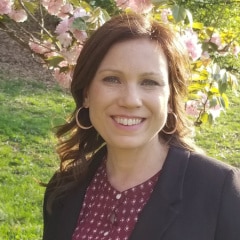
Enacting an Antiracist Critical Literacy Pedagogy in Rural Places: How Appalachian Teachers Engage Students in the Interrogation of Whiteness
Educators’ responsibility to help students interrogate the systemic nature of racism and the ubiquity of Whiteness as an ideology requires a sophisticated understanding of the nuances of antiracist instruction in various contexts. Thus, this multiple case study investigation will examine how teachers in a particular context—rural Appalachia—enact an antiracist critical literacy pedagogy, providing nuance to the current virulent debate over how issues surrounding race should be taught. For the study, eight K-12 teachers will co-develop and teach antiracist language arts units using frameworks of critical pedagogy of place (Greenwood, 2003), critical civic empathy (Mirra, 2018), and historically responsive literacy (Muhammad, 2020). Critical ethnographic observations (Carspecken, 1996) during instruction that examine classroom power dynamics and external exertions of power/Whiteness (from policymakers, administrators, the media, etc.) alongside teacher interviews and rigorous researcher self-reflection will reveal challenges and successes in promoting racial literacy (Croom, 2020). Interactions will be interpreted through the lenses of rurality and place, invoking critical discourse analysis (Rogers & Mosley-Wetzel, 2017) to analyze each case individually, integrating findings across cases as the study develops. Applying layered theoretical perspectives of critical race theory (e.g., Ladson-Billings, 1998), Whiteness studies (Leonardo, 2013)/critical Whiteness studies (Matias, 2016), antiracism (Kendi, 2019), and abolitionist teaching (Love, 2020) to thick descriptions of school and community contexts, detailed explorations of students’ responses to antiracist instruction, and critical analyses of teachers’ pedagogical moves will provide insight for pursuing antiracist teaching in places where community resistance may impede the establishment of racial literacies.
Sarah McGrew, University of Maryland, College Park

Sarah McGrew is an Assistant Professor in the Department of Teaching & Learning, Policy & Leadership at the University of Maryland, College Park. She studies educational responses to the spread of online mis- and disinformation, focusing on how young people search for and evaluate online information and how teachers can better support students to learn effective evaluation strategies. Her recent research has been published in outlets including Cognition and Instruction, Computers & Education, Journal of Educational Psychology, and Teaching and Teacher Education. She earned a B.A. in Political Science and Education from Swarthmore College and an M.A. from the Stanford Teacher Education Program. She taught high school history in Washington, D.C. for five years before returning to Stanford to complete her Ph.D. in Curriculum and Teacher Education.
Moving Beyond Fake News: Teaching Students to Evaluate Online Information in More Authentic Contexts
As divisive misinformation proliferates online, our decisions about what to trust depend on our strategies for judging reliability and our understandings of how our identities and beliefs influence what we see and how we react. However, existing research-based efforts to teach online evaluation focus on the former while largely neglecting the latter. How might teachers help students reflect on how their identities and beliefs shape the content they encounter and how they evaluate it? What support do teachers need to engage in this work? I approach answering these questions through a curriculum development and professional development project. I will work with teachers to develop an approach to teaching students to evaluate online information that engages students in evaluating information on topics they care about, analyzing the contexts that produced that information, and reflecting on how their beliefs and emotions may influence evaluations. Drawing on data from lessons, professional development and planning meetings, and student pre- and posttests, I will investigate teachers’ learning, their lesson planning and enactment, and students’ learning. This study will help us understand how teachers might embed online evaluations in more authentic contexts and what students learn from such efforts. Further, it will clarify the professional development efforts that can help teachers integrate teaching online evaluations into their curricula. Students spend hours online every day, often bombarded by emotionally and politically charged content. Teachers can help prepare students for this immense challenge, and this study begins that work.
Kongji Qin, New York University
Kongji Qin is an Assistant Professor of Language Education in the Department of Teaching and Learning at New York University’s Steinhardt School of Culture, Education, and Human Development. As a transnational scholar trained in both China and the United States, Dr. Qin’s research centers on understanding and addressing inequality in and through the language and literacy education of immigrant youth in U.S. schools. Drawing on critical race theories, gender studies, poststructuralist theories, postcolonial theories, and discourse analysis, his research is driven by questions that lie at the axes of immigration, language, pedagogy, identity, and justice. His work features three interconnected research programs: understanding the relationship between immigrant adolescents’ negotiation of racialized masculinities and language learning, preparing linguistically responsive content teachers for immigrant students, and addressing educational inequality through anti-racist pedagogies and critical participatory action research with immigrant youth. Dr. Qin’s scholarship has been supported by the Spencer Foundation and his recent publications can be found in The Modern Language Journal, Reading Research Quarterly, Research in the Teaching of English, Beijing International Review of Education, Teaching and Teacher Education, and Urban Education. Dr. Qin received his Ph.D. in Curriculum, Instruction, and Teacher Education with a Language and Literacy Specialization from Michigan State University in 2016, and his M.A and B.A. in English Language and Literature from Huazhong (Central China) Normal University in Wuhan, China.

Immigration Literacy & Dignity Project: Counteracting Xenophobia and Racism Through YPAR and Anti-Oppressive Language and Literacy Pedagogy
Immigrant youth suffer from xenophobia and racism on a regular basis, which impacts their learning, well-being, and identity. Supporting immigrant youth in navigating and addressing xenophobia and racism through anti-oppressive pedagogies is a matter of educational equity. Designed as a case study of a participatory pedagogical exploration in one U.S. English language arts (ELA) classroom, this project uses multiple methods to explore how an intergenerational research collective of educators, students, activists, and university-based researchers can support immigrant youth to engage in critical inquiry and linguistic activism to counteract xenophobia and racism. Specifically, this project first examines how the ELA teacher and university-based researchers, through collaborative practitioner research, co-create a language curriculum on immigration, inequality, and inquiry. Secondly, it explores how the teacher enacts this curriculum to develop immigrant students’ critical language and literacy skills. Third, it studies how students use such skills in youth participatory action research (YPAR) to interrogate and counter anti-immigration narratives through storytelling, writing, and activism. Drawing on knowledge collectively generated from the research, this project aims to build a theory of anti-oppressive language and literacy pedagogy that centers immigrant students’ concerns, voice, and agency in teaching literacy for immigration justice, equity, and dignity. This project has the potential to contribute significantly to the research and practice of immigrant learner education, school-based YPAR, and anti-oppressive pedagogies.
Xu Qin, University of Pittsburgh

Xu Qin is an assistant professor of research methodology in the School of Education at the University of Pittsburgh. Her research focuses on 1) developing statistical methods for investigating the heterogeneity in causal mediation mechanisms in single-level and multilevel settings; 2) developing sensitivity analysis and power analysis methods for causal mediation analysis; and 3) applying causal inference methods for educational program evaluations. She is a past recipient of a National Academy of Education /Spencer Foundation Dissertation Fellowship (2017). She has received research funding from the Spencer Foundation, Institute of Education Sciences, and National Science Foundation. Her work has been published in the Journal of Educational and Behavioral Statistics, Journal of Research on Educational Effectiveness, Journal of Policy Analysis and Management, Psychological Methods, and Journal of the Royal Statistical Society, Series A (Statistics in Society), among others. Xu earned her Ph.D. from the Department of Comparative Human Development at the University of Chicago.
New Tools for Causal Investigations of for Whom and Where an Educational Intervention is Effective and Why
Research questions about for whom and where an intervention is effective have become increasingly valued in educational research. To further understand why, it becomes essential to conduct a causal moderated mediation analysis, which assesses the heterogeneity of the mediation mechanism underlying the intervention impact across individual and contextual characteristics. However, this line of research has been underdeveloped due to the lack of statistical tools. This project aims to fill the gap by developing an analytic procedure, a sensitivity analysis strategy, and a power analysis tool for causal moderated mediation analysis. Evidence obtained based on the methods will not only advance scientific knowledge in education but also suggest useful future directions for the improvement of educational interventions. The methods will be evaluated through both Monte Carlo simulation studies and real data applications. A user-friendly R package will also be developed to enable educational researchers to easily implement the methods, so that they can better illuminate how reforms can be designed and implemented for different types of students and under different settings to maximize benefits of educational programs.
Tanya Sanabria, California State University, Los Angeles
Tanya Sanabria is an Assistant Professor at California State University, Los Angeles. She received her Ph.D. in Sociology from the University of California, Irvine (2019), and her B.A. in Sociology from California State Polytechnic University, Pomona (2012). Her primary areas of research include education policy, inequality, and social mobility. Using quantitative research methods, Dr. Sanabria’s research examines how schooling policies help or hinder students’ transitions into adulthood. This involves two major strands: 1) investigations on how signals of academic performance (e.g., labels) contribute to unequal trajectories in educational and labor market pipelines; and 2) examinations around racial, ethnic, gender, and social class disparities in response to academic performance feedback (e.g., course failure) in K-12 and higher education. Her work has been published in Educational Researcher, Socius, Research in Higher Education, and Social Sciences. Prior to joining Cal State LA, Dr. Sanabria was a research intern at the United States Census Bureau for two years, linking school administrative data with census data.

What’s in a Label? The Impacts of Reading Proficiency Labels on Young Adult Outcomes
Despite previous research demonstrating that test score labels in high-stakes environments shape educational inequality, prior analyses overlooked the role of receiving a proficiency label in low-stakes environments on postsecondary outcomes and labor market performance. Using a novel dataset linking Oregon statewide administrative data with IRS tax records provided by the U.S. Census Bureau and postsecondary records from the National Student Clearinghouse (2005-2019), I investigate the long-term effects of proficiency labels received in third grade from low-stakes annual state standardized exams, examining how these effects operate through middle and high school achievement onto early adulthood outcomes. Employing a regression-discontinuity (RD) design, I estimate the plausibly causal impact of receiving a lower-status performance label on college enrollment, persistence, employment, and wages. Additionally, I investigate whether these labeling effects intersect with gender and racial inequality, focusing on how disparate educational opportunities – reflected in the assignment of proficiency labels – contribute to stratification in higher education and the labor market. Both the unique dataset and RD approach will reveal new insights on the effect of proficiency labels that eluded prior studies. Findings from the study can inform policies related to student assessment and proficiency labels.
Stephen Santa-Ramirez, State University of New York at Buffalo

Dr. Stephen Santa-Ramirez (he/him) broadly investigates the ideological, historical, and structural inequalities that impact racially minoritized and migrant communities. More specifically, he centers on campus racial climate, first-generation students of Colors’ transitions and belongingness, college student activism and resistance, and the various ways race, ethnicity, and im/migration policies inform the experiences of collegians who are undocu/DACAmented. Dr. Santa-Ramirez is currently an Assistant Professor of Higher Education at the University at Buffalo (UB), which operates on the unceded ancestral territory of the Seneca Nation of the Haudenosaunee Six Nations Confederacy. Prior to joining the faculty at UB, he taught for the Philadelphia Freedom Schools, Michigan State University, The University of Texas at Arlington, and Arizona State University. In addition to authoring a host of book chapters, some of his recently published work can be located in the Journal of First-generation Student Success, Journal of Diversity in Higher Education, International Journal of Qualitative Studies in Education, and the Journal of Hispanic Higher Education. Dr. Santa-Ramirez is a 2022 Diamond Honoree via ACPA – College Student Educators International – a prestigious honor for professionals who have made and continue to make a tremendous impact in the field of higher education and student affairs. Furthermore, in recent years, he received the ACPA Latinx Network Community Advancement & Service Award, is a Legacy of Leadership honor recipient from West Chester University, and was selected as a Fellow for NASPA’s Emerging Faculty Leadership Academy and the American Association of Hispanics in Higher Education (AAHHE). Dr. Santa-Ramirez obtained his Ph.D. in Educational Policy and Evaluation and a graduate certificate in Socio-economic Justice from Arizona State University.
So, What Happens Now? The Post-Graduation Transitional Experiences of Recently Graduated Collegians who are Undocu/DACAmented
Nearly 100,000 students who identify as undocu/DACAmented graduate from U.S. high schools each year, with 2.1 million college-aged. For the last decade, there has been an increasingly growing body of scholarship centering these collegians, including their advocacy efforts and revealing the barriers they often encounter with access to and persistence in higher education. Little empirical research in this area highlights post-college outcomes associated with legal uncertainty. Guided by UndocuCrit and transition theoretical connections, this phenomenological study investigates the post-college career preparatory and post-graduation experiences of recently graduated undergraduate collegians who are undocu/DACAmented in the Southwest and Northeast regions of the United States. The results will contribute to existing literature centering undocu/DACAmented collegians’ lived experiences, offering exigent implications for institutional agents and policymakers interested in retention, student success, and post-graduation preparedness to more effectively engage with and holistically support these collegians as they transition in, through, and out of college.
Beth Schueler, University of Virginia
Beth Schueler is an Assistant Professor of Education and Public Policy at the University of Virginia. She studies education policy, politics, and inequality with a focus on efforts to improve low-performing K-12 schools and districts. She uses both quantitative and qualitative methods to learn which policies are most effective at improving educational organizations and what makes these policies more or less politically viable. She also has a strand of research examining the role of educational organizations in developing students’ civic competencies, critical thinking, and argumentation skills. Her work in these areas has been published in journals such as Journal of Policy Analysis and Management, Educational Evaluation and Policy Analysis, Education Finance and Policy, and Public Opinion Quarterly, and has been covered by media outlets such as the New York Times, Boston Globe, and Education Week. Prior to joining the faculty at UVA, she was a postdoctoral research fellow at the Harvard Kennedy School of Government. Schueler holds a doctorate in education policy from the Harvard Graduate School of Education, holds a master’s degree in politics and education from Columbia University’s Teachers College, has taught on the politics of education at Brown University, and previously worked on legislative affairs at the New York City Council.
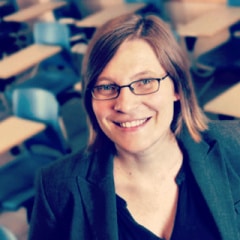
Sustaining School District Improvement
Given low-income students of color are disproportionately concentrated in our nation’s lowest-performing school districts, improving the performance of these systems is a potentially high-impact lever for mitigating race- and class-based educational inequality. A series of studies show improvement efforts can generate short-term test score gains, but less is known about the longer-term effects, the impact on non-test outcomes, the ability for states to replicate successes across districts, and the strategies for implementing policy in a politically viable manner. This mixed methods study examines district improvement efforts in Massachusetts, home to a rare case in which the state was able to generate substantial improvements to the historically low-performing Lawrence Public Schools and do so while generating community support rather than significant resistance. The project examines whether the state was able to sustain gains in Lawrence seven years after reform, generate gains on longer-term outcomes such as high school graduation and college going, and replicate the short-term gains as well as the positive political response in three additional districts—Holyoke, Springfield, Southbridge—targeted for state-led intervention based in part on the early Lawrence successes. The results will have implications for leaders seeking to implement effective, politically viable, and sustainable school improvement.
Ashley Smith-Purviance, The Ohio State University

Ashley L. Smith-Purviance is an incoming Assistant Professor in the Departments of African American and African Studies and Women’s, Gender, and Sexuality Studies at The Ohio State University. Dr. Smith-Purviance’s scholarship critically analyzes how social structures, educational policies, and institutions shape and reproduce harmful inequalities for Black women and girls. At the intersection of state violence and school discipline, her work examines the various forms of punishment, anti-Blackness, and gender-based violence Black girls experience in schools and society. Dr. Smith-Purviance’s research also explores alternative educational spaces, also known as Black girl spaces, created by and for Black girls. As a community-engaged scholar, Dr. Smith-Purviance has co-created various Black girl spaces alongside Black girls and women. Informed by her community-engaged work, her scholarship explores the necessity of Black girl spaces within and outside of schools that center Black girls’ exploration and celebration of their identities, moments of joy, and acts of refusal to the harm and violence they often navigate. Her work has been published in peer-reviewed journals such as Feminist Studies and The Journal of Negro Education. She was also a recipient of the 2019 National Academy of Education/Spencer Foundation Dissertation Fellowship and has since received numerous awards for her scholarship and community-engaged work. Dr. Smith-Purviance earned her doctorate in Educational Policy Studies with a minor in Gender and Women’s Studies from the University of Wisconsin-Madison.
Post-Pandemic Possibilities: Black Women Youth Workers Reimagining Education
Even during the emergence of a global pandemic, Black girls were disproportionately disciplined, pushed out, physically assaulted, and rendered disposable during virtual and in-person schooling. Considering the anti-Black violence Black girls face in education, this study explores the spaces Black girls escape to for respite, healing, [educational] freedom, safety, and wellbeing within and outside of schools.
This study examines the experiences of Black women youth workers who create educational spaces alongside Black girls outside of traditional school contexts. Drawing on articulations of Black fugitive educational spaces (ross, 2020) and Black girl spaces, this research describes fugitive Black girl spaces, or community-based and after school educational spaces that Black women and girls co-curate to shape Black girls’ resistance to, and escape from the harm they face within and outside of schools. This qualitative project examines Black women youth workers’ approaches to creating spaces that prioritize Black girls’ wellbeing via various pedagogies, activities, and community-centered practices. This study also explores the potential of spaces Black women youth workers cultivate to remedy Black girls’ educational experiences during the pandemic, and the possibilities for these innovations to help us reimagine education post-pandemic and beyond. This work incorporates narrative inquiry and critical ethnographic methods such as interviews, participant-observations, and document and digital media analysis to understand (1) how Black women youth workers are reimagining education, and (2) the necessity of fugitive Black girl spaces to lead us toward educational change that offers Black girls sites to center their joy, healing, thriving, and educational futures.
Krystal Strong, Rutgers, The State University of New Jersey
Krystal Strong is Assistant Professor of Black Studies in Education at Rutgers University-New Brunswick. Dr. Strong holds a PhD in Anthropology from University of California, Berkeley and her research uses ethnographic, participatory, and multimodal methods to investigate youth and community activism, global Black social movements, and the role of education as a site of struggle in the African Diaspora. Her first book, Apprentices to Power: Students and the Anti-Radicalism of Leadership in Nigeria After Democracy is an ethnography of post-military university student politics and the trappings of leadership after Nigeria’s transition to democracy. Her more recent research projects investigate school protest and youth leadership development in Africa, and collaboratively document community-led organizing work around educational justice and Black communities in Philadelphia, her hometown. Dr. Strong has shared here research on African youth as expert testimony before the U.S. House of Representatives Committee on Foreign Affairs. She is a recipient of the Concha Delgado Gaítan Early Career Presidential Fellowship of the American Anthropological Association Council on Anthropology and Education and the Ernest D. Morrell Emerging Scholars Award of the Comparative and International Education Society African Diaspora SIG, in addition to fellowships from the Fulbright Program, Ford Foundation, and the Mellon Foundation. Dr. Strong is an active community organizer and her work as a core organizer with Black Lives Matter Philadelphia centers abolition, educational justice, and Pan-African social movement-building. She brings this commitment to social justice and the lessons of grassroots activism to bear on her scholarship and pedagogy.
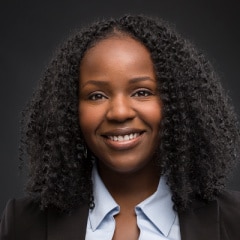
Fast-Tracking Leaders: A Critical Ethnographic Study of Youth Leadership Development in Africa
Over the past decade, hundreds of educational initiatives have been established globally with the explicit mission of grooming a new generation of African leaders through leadership-focused schools, degree programs, scholarships, training institutes, and online learning communities. Yet, no significant research has examined this multibillion-dollar educational industry beyond the analysis of individual programs or national initiatives. This ethnographic study examines African youth leadership development transnationally, with a focus on organizational structures, pedagogical approaches, and participant experiences. Using interviews, surveys, ethnographic observation and fieldwork, and digital mapping, I investigate: (1) the global landscape of African youth leadership development; (2) how programs define their purpose and pedagogy; (3) youth experiences; and (4) how the broader group of participants negotiate leadership development in practice. Critically, this study asks whether “fast-tracking” a select group of youth into leadership may further marginalize less-resourced youth or create a new class of elites, as has occurred with other forms of educational tracking and prior eras of educational development in Africa. The findings will offer insight into the social impact of the pivot in international educational policy toward “positive youth development” as a catalyst for change in Africa and other parts of the world.
Enrique (Henry) Suárez, University of Massachusetts, Amherst

Enrique (Henry) Suárez is an Assistant Professor of Science Education at the University of Massachusetts, Amherst. Drawing on a range of learning theories, his scholarship focuses on making science learning equitable and just for students and teachers, emphasizing the importance of understanding and relating to the natural world through investigations. Specifically, Henry’s research focuses on designing and studying learning environments that create opportunities for elementary-aged multilingual students to leverage their translanguaging practices for learning science. Ultimately, Henry’s work aims to disrupt linguistic injustices in science learning environments, which police and denigrate students’ multilingual, multimodal, and multisensory forms of communication. His scholarship has appeared in Science Education, Cognition & Instruction, and Journal of Research in Science Teaching, among other journals. Most recently, he was a member of the National Academies of Sciences, Engineering, and Medicine committee on Enhancing Science and Engineering Education in Pre-Kindergarten Through Fifth Grades. Henry received his PhD in Science Education from the University of Colorado, Boulder in 2017 and was a postdoctoral fellow at the Institute for Science and Math Education at the University of Washington 2017-2019. He also holds a B.S. in astrophysics from the University of Oklahoma and a M.S. in science education from Tufts University.
More Than Words: How Emergent Bilingual Students Laminate Multiple Semiotic Resources When Investigating Justice-Oriented Natural Phenomena
Reform efforts in science education call for students to learn science by engaging in science practices, such as constructing and refining explanatory models. Additionally, efforts to make science more equitable emphasize the need for science learning to connect to students’ lives and communities. And yet, for decades, the field of science education has debated what should be prioritized when (emergent) bi-/multilingual children learn science. While some privilege students acquiring “scientific academic” language, I argue that bi-/multilingual children should learn science through building on their full communicative repertoires, rather than being assimilated into dominant forms of knowing and communicating. In this proposed research, I build on translanguaging – a theoretical and pedagogical lens for understanding how bi-/multilingual speakers flexibly leverage their full semiotics repertoires – to explore how bilingual students in elementary grades investigate phenomena and co-construct knowledge, particularly when interacting with their material environments. Specifically, I will partner with elementary school teachers to design science learning activities that are anchored in justice-oriented phenomena and promote bilingual students’ sophisticated translanguaging practices. The classrooms interactions and instructional designs I analyze will provide strategic insight into how these students laminate multilingual, multimodal, multisensory, and spatial resources when co-constructing knowledge about phenomena, especially when supported by science artifacts. Findings from this project can further inform how to design justice-oriented science education for bi-/multilingual children, as well as disrupt the deficit-based science pedagogies that frame these students’ ways of communicating as insufficient and inappropriate.
Derron Wallace, Brandeis University
Derron Wallace is an Assistant Professor of Sociology and Education at Brandeis University. His research is concerned with the analysis and amelioration of structural and cultural inequalities that shape schooling for Black youth, nationally and internationally. An ethnographer and comparative sociologist of race, ethnicity and education, Derron’s research has been published in sociology and education journals, including the flagship journal of the British Sociological Association Sociology, British Journal of Sociology of Education, International Studies in Sociology of Education, Cultural Sociology, Race, Ethnicity & Education, Gender and Education, and Harvard Educational Review. For his scholarship focused on the education of Black youth in global cities, Derron received the 2019 Joyce Cain Award from the Comparative and International Education Society, and the 2015 Distinguished Dissertation Award from Division G of the American Educational Research Association.
Derron received his Ph.D. from the University of Cambridge, where he was a British Marshall Scholar and a Gates Cambridge Scholar. He holds a B.A. from Wheaton College (Massachusetts), in sociology and the African diaspora studies.

Policing for Safety in Schools? Exploring Black Youth’s Experiences of New School-Based Policing in Britain
School-based policing is now a key feature of British educational policy and practice for the first time in the history of British schooling. The introduction of in-school policing follows a sharp increase in knife crime in major British cities since 2017. And though knife crime has occurred largely in out-of-school spaces, Britain’s Children’s Affairs Commissioner called for “neighborhood police officers attached to every school” —mirroring practices in the United States for dealing with safety in schools. The proposed study is the first ethnographic study of how Black youth experience new developments in policing in London public schools. Drawing on archival analysis, in depth interviews, and participant observations at one of the first schools in London to host police officers as members of staff, and to install metal detectors at the entrance of schools, this project advances two key objectives. First, it assesses the discursive development of narratives on policing students from 1970-2020. Second, it explores Black youth’s sense-making of routine in-school policing commonly proposed as a solution to school safety concerns. This project will contribute to international educational research by documenting the voices and views of Black youth on policing and schooling in the global city they call home.
Brittany Williams, University of Vermont

Brittany M. Williams is a proud daughter of the working-class Black American south and product of Atlanta Public Schools. Beginning fall 2022, Dr. Williams will serve an Assistant Professor of Higher Education and Student Affairs Administration at the University of Vermont. Her research broadly explores race, class, and gender in education. She is particularly interested in (1) the nexus of education and health, inclusive of HIV/AIDS and stress; (2) how supervision and workplace dynamics influence employee success; and (3) the impact of social identity-based inequalities on higher education access, attainment, and achievement within which she centers classism, identity development, and citational injustic. Her personal-professional advocacy has recently appeared in AIDS United, National Public Radio, Teach for America, the National Black Women’s Health Imperative, and the National Minority Aids Council.
Williams’ scholarship has been published in numerous academic journals including Journal of Diversity in Higher Education, Review of Higher Education, and Higher Education Research and Development, and has received extramural funding from the American Association of University Women. She recently co-edited the monograph Supervision in student affairs: Approaches and tensions in today’s workplaces (2021, with New Directions for Student Services). Prior to the 2022 academic year, she served as faculty at St. Cloud State University. Williams received her B.A. (Interdisciplinary Arts) from Hampshire College, M.A. (Sociology of Education) from Teachers College—Columbia University, and Ph.D. (College Student Affairs Administration) from the University of Georgia. She is a proud co-founder of two digitally rooted co-mentoring communities for Black women: #SisterPhD and #CiteASista.
Beyond “Know Your Status”: Investigating HIV/AIDS in Conversation with Black College Women
As a social determinant of health, education is inextricably linked with health disparities making research at the nexus of education and health vital for students’ long-term success. HIV/AIDS is a major health disparity disproportionately impacting young adults, Black women, and U.S. Southerners. Center for Disease Control data suggests that HIV/AIDS infections are most common among people aged 13-45; Black women account for 58% of all women diagnosed and living with HIV in the U.S.; and Georgia ranks first of all 50 states in new HIV infections. Historically Black Colleges & Universities and predominantly Black Minority Serving Institutions in Metro Atlanta are, then, unique contexts to help mitigate the HIV/AIDS epidemic. To effectively leverage these campuses, there is an urgent need for HIV/AIDS research centering Black college women in their own words and on their own terms.
This project is an intersectional qualitative study exploring Black college women’s attitudes, skills, and knowledge on the HIV/AIDS crisis in Metro Atlanta using sista circle methodology. While centering Black college women’s knowledge production and histories, I will specifically explore their perspectives on HIV/AIDS health and education policies, practices, and awareness of available biomedical prevention treatments such as pre-exposure prophylaxis (PrEP) and post-exposure prophylaxis (PEP). Given the necropolitical attitudes towards HIV/AIDS prevention and mitigation in the U.S. South, the findings from this project will inform campus leaders and stakeholders on how to better support Black women’s health education and campus health policies using the stories of their lives.

